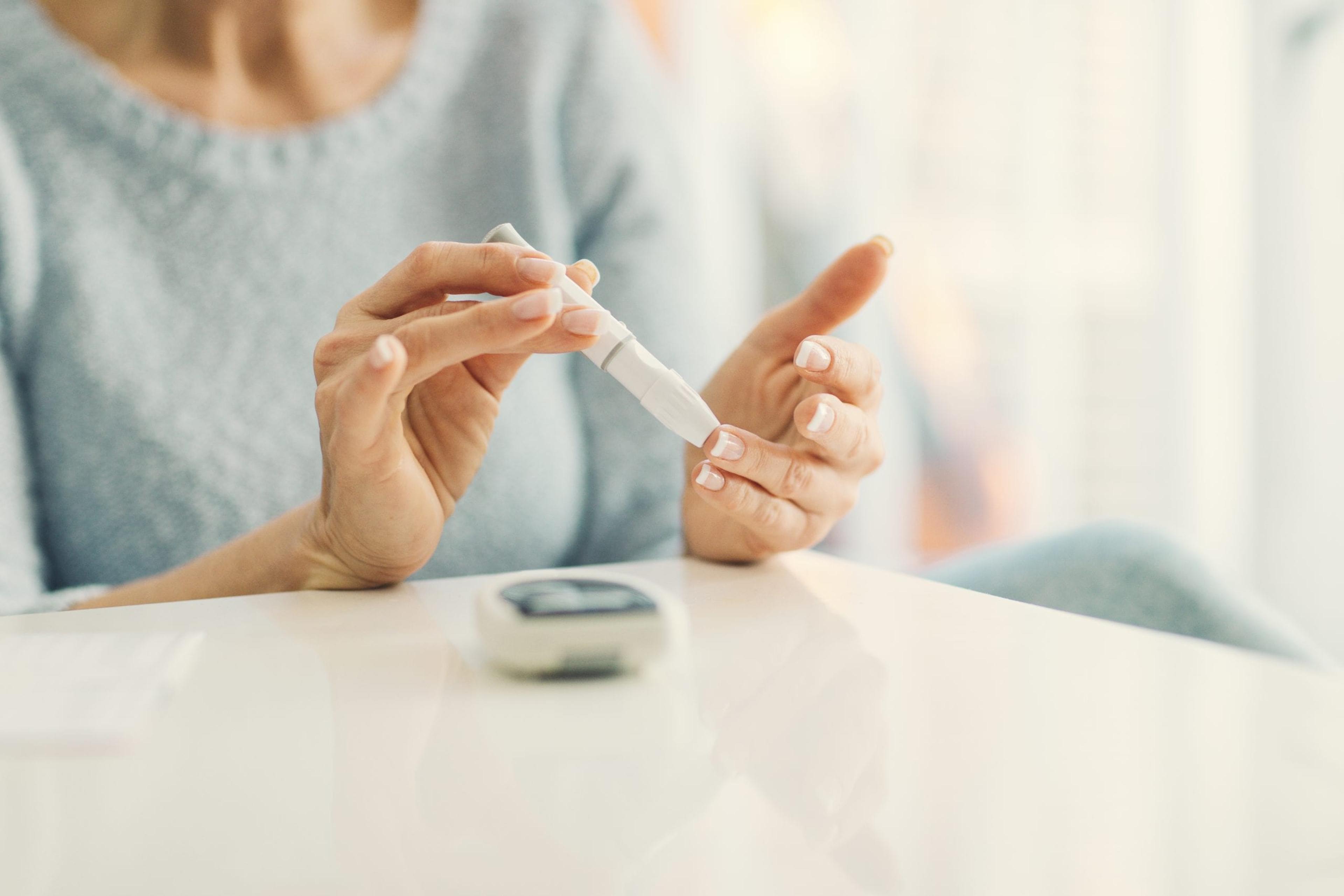
If you’re one of the more than 400 million people living with diabetes worldwide, you may be especially worried about contracting COVID-19. The U.S. Centers for Disease Control and Prevention advises that people with underlying health conditions are especially vulnerable to having serious complications from illnesses such as COVID-19. If you or a loved one is living with type 1 or type 2 diabetes, here’s what you should know.
People with diabetes are at a greater risk for severe outcomes
According to the American Diabetes Association, there aren’t enough studies to conclude whether or not people with diabetes are more likely to get COVID-19. However, it is believed that people with any autoimmune disorder face a greater likelihood of developing severe complications because they are immunocompromised. For people with well-controlled diabetes, the risk of severe outcomes is generally not much greater than the average population. Therefore, it’s important to continue taking medications as prescribed by your doctor to keep your blood sugar within the range set by your health care team. Everyone should be taking extra precautions to prevent the spread of illnesses, including handwashing with soap and water for at least 20 seconds.
Contact your doctor and follow your sick day management plan if you become ill
Pay attention to potential COVID-19 symptoms including fever, dry cough, and shortness of breath. If you feel you are developing symptoms, call your doctor. When you call:
- Have your blood glucose log available
- Be clear on your symptoms
- Ask questions on how to manage your diabetes
If you do become ill your blood sugar may be harder to control. Here are some general tips, which may vary for each person:
- If you use a blood glucose monitor, make sure you’re checking your sugar frequently as directed by your physician or treatment plan.
- Be especially mindful of your body’s cues telling you your sugar is too high or too low. If you wear a continuous glucose monitor (cgm), make sure to you check your blood sugar if your symptoms do not match your cgm reading.
Be mindful of your carb intake when you are sick
If you are sick, it’s important to stick with your meal plan. If you cannot eat, drink extra calorie-free liquids to prevent dehydration. You may also need to drink small amounts of beverages with sugar if you are not eating any carbs. Call your doctor if you are having trouble keeping your blood sugar in range.
Prepare now before getting sick
Being sick is hard enough but having to manage a chronic condition on top of that can make it extra difficult. Make sure you have enough supplies on hand. Some items to consider include medications including insulin, glucometer, test strips, insulin syringes or insulin pens, ketone strips, glucagon and of course water and carbohydrates (drinks and food). Many retail pharmacies are offering free home delivery or using a mail-order pharmacy can be an option to ensure you have an adequate supply of medications while minimizing trips outside the home. Of course, have your doctor’s contact information handy in case you need it.
Clean your home
If you or a loved one has been diagnosed with COVID-19 or have been in close contact with someone who has, be extra diligent in washing and disinfecting your home regularly. If it is possible for individuals with underlying health conditions to have their own space in the home, they should do so to further limit the risk of exposure. If you have tested positive for COVID-19, you should seek immediate medical attention if you are experiencing emergency warning signs:
- Trouble breathing
- Persistent pain or pressure in the chest
- New confusion or inability to arouse
- Bluish lips or face
If you must go to the emergency room, make sure you are wearing a medical ID and inform the hospital staff immediately that you have diabetes. Related:
- Why Medication Adherence is Important for People at a High Risk for COVID-19
- What Does it Mean to Be Immunocompromised
- Community Efforts Define Coronavirus Response in Michigan
- How to Stay Safe While Grocery Shopping and Ordering Takeout
Photo credit: vgajic






